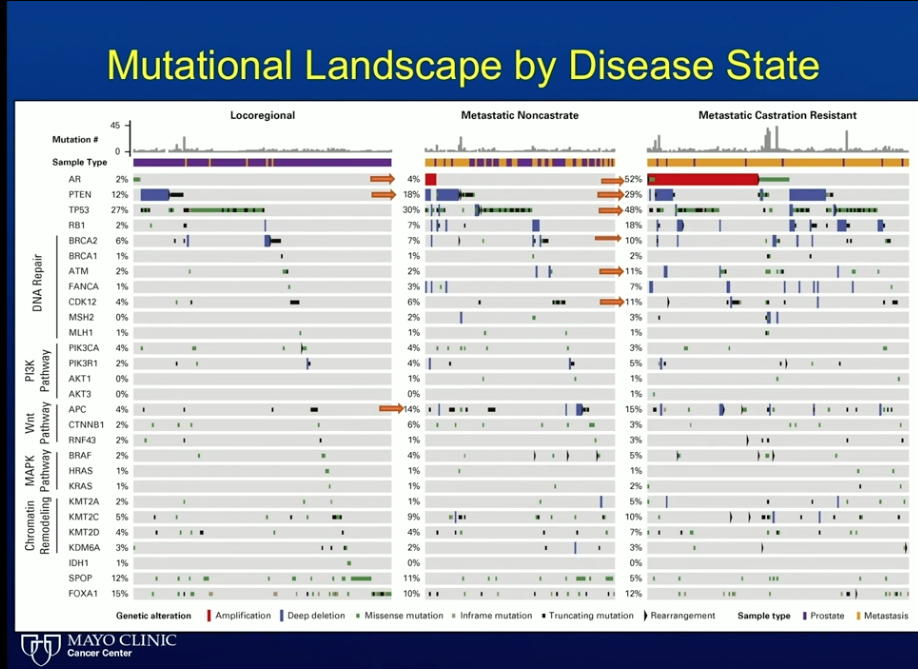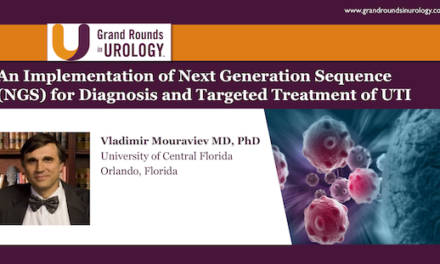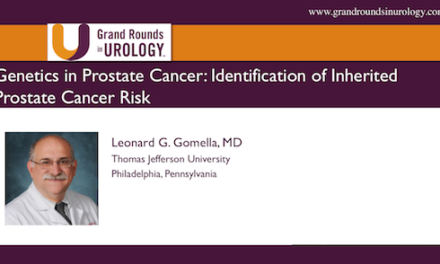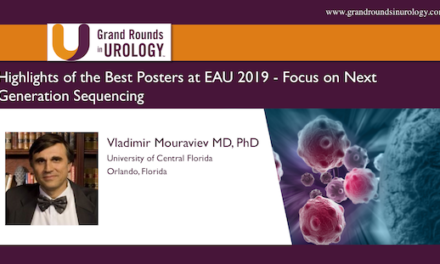Alan H. Bryce MD, presented “Genetic Testing and Next Generation DNA Sequencing” during the 27th Annual Perspectives in Urology: Point Counterpoint on November 9, 2018 in Scottsdale, Arizona.
How to cite: Bryce, Alan H. “Genetic Testing and Next Generation DNA Sequencing” November 9, 2018. Accessed Jan 2025. https://dev.grandroundsinurology.com/genetic-testing-and-next-generation-dna-sequencing/
Genetic Testing and Next Generation DNA Sequencing – Summary:
Alan H. Bryce, MD, explains the concept of synthetic lethality in the context of BRCA-deficient tumors, as well as resistance to poly (ADP-ribose) polymerase (PARP) inhibition. He also discusses the under-utilization of inherited cancer risk syndromes in prostate cancer practice, research, and guidelines, as well as new pathways for therapeutic targeting
Abstract:
Large-scale genome sequencing of prostate cancer has led to a rapid expansion in urology regarding the genetic drivers of disease. Evidence proves DNA damage response (DDR) genes to be frequently altered, both in germline and somatic testing. The rate of alterations increase as disease progresses from locoregional to metastatic non-castrate, and then from metastatic non-castrate to metastatic castration -resistant. New systemic therapies, such as PARP inhibitors, may better target DDR alterations in up to 25% of metastatic patients.
DDR mutations can also drive familial prostate cancer risk. However, screening continues to under-utilize DDR mutations. Current screening guidelines fail to capture a substantial portion of patients with high-risk genetics. Therefore, more widespread testing for germline mutations is necessary. A variety of other recently-identified, frequently altered genes have implications for immunotherapy, targeted therapy, and treatment sequencing. Because of this, future treatment paradigms will likely incorporate germline and somatic mutation data.
About Perspectives in Urology: Point Counterpoint
Perspectives in Urology: Point Counterpoint (PCP) is an annual CME-accredited conference devoted to discussing and debating the latest topics in men’s health, general urology, and genitourinary cancers. The conference’s format includes more than didactic lectures. It also includes debates, point-counterpoint discussion panels, and unique case-based presentations. Dr. Bryce presented this lecture during the 27th PCP in 2018. Please visit this page in order to register for future PCP meetings.
ABOUT THE AUTHOR
Dr. Bryce is the Medical Director of the Genomic Oncology Clinic at Mayo Clinic Arizona in Scottsdale, where he utilizes whole genome sequencing of tumors to identify key driver mutations. This approach allows for precise targeting of a patient’s tumor, leading to a greater chance of remission.
Dr. Bryce received a BS in Biochemistry from the University of California, Los Angeles. He then went on to receive his MD from Finch University of Health Sciences/Chicago Medical School. He completed a residency at the Mayo Graduate School of Medicine, and then received a Fellowship in Hematology/Oncology, also at the Mayo Graduate School of Medicine. He eventually served as Chief Fellow of Hematology/Medical Oncology there.
Dr. Bryce studies cancer genetics and novel therapeutics with a focus on personalized medicine. His clinical practice centers on genitourinary malignancies (prostate, kidney, bladder, and testicular cancers) and melanoma. In addition, Dr. Bryce participates in community outreach to underserved populations and has an interest in health disparities research. He also conducts Phase I clinical trials of new cancer drugs.





